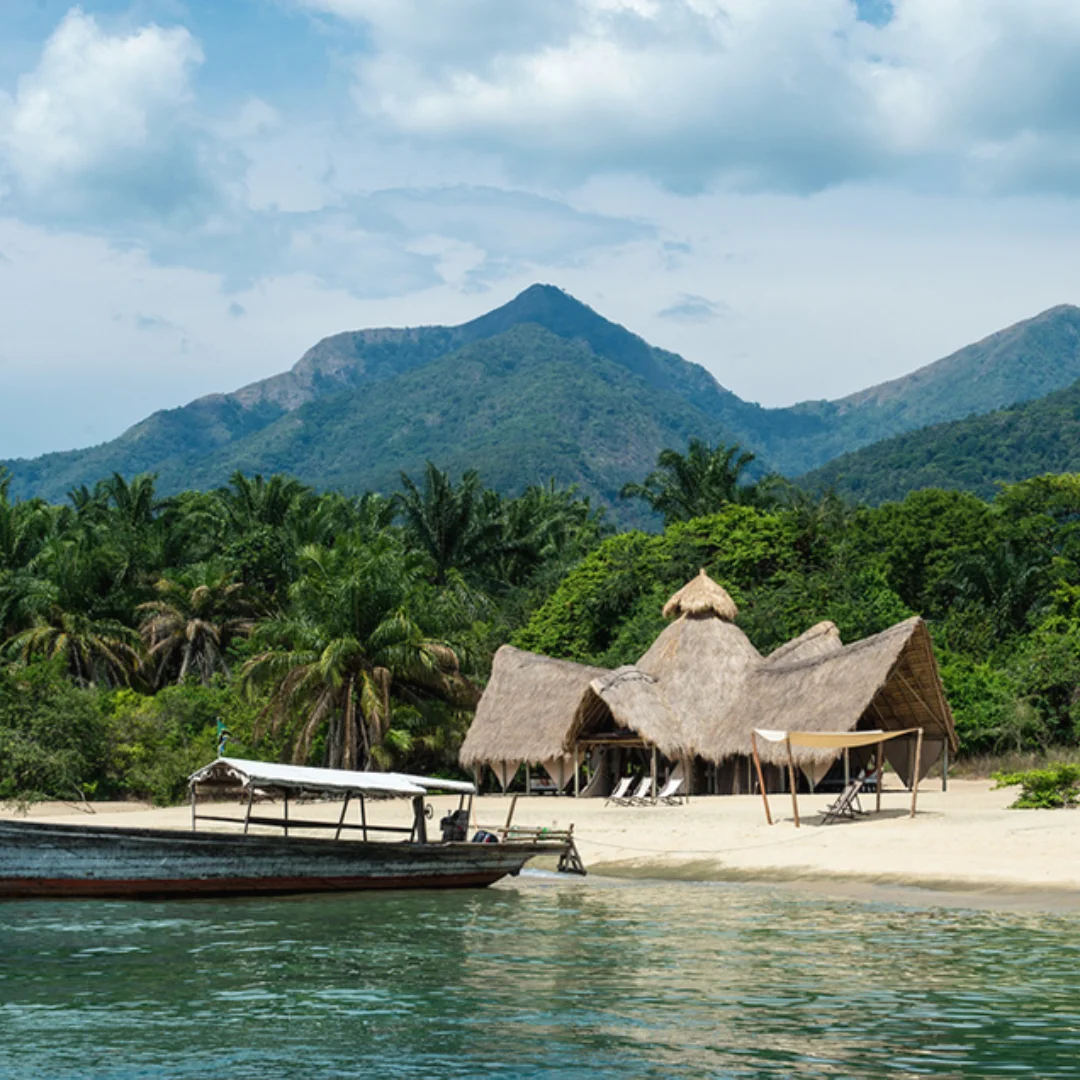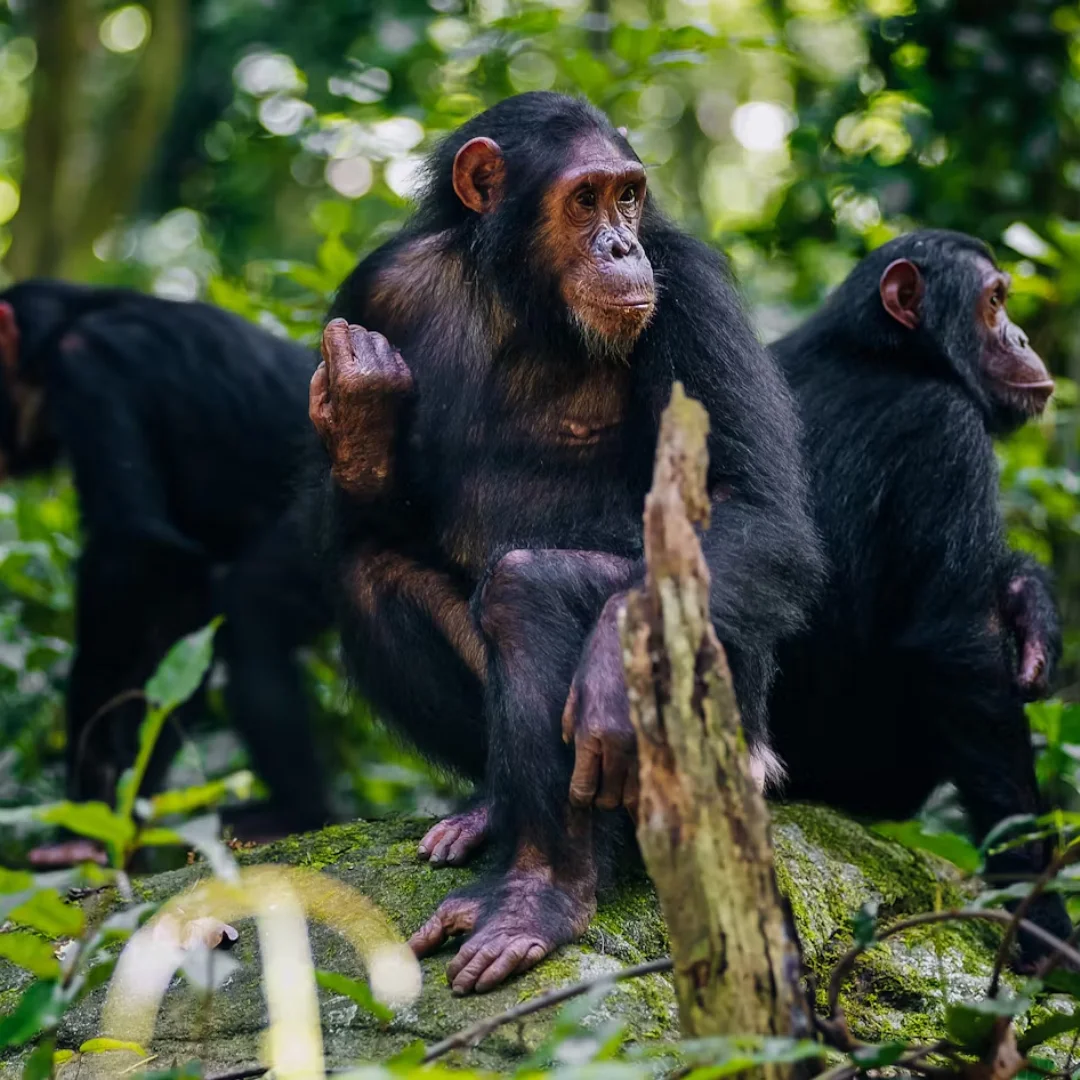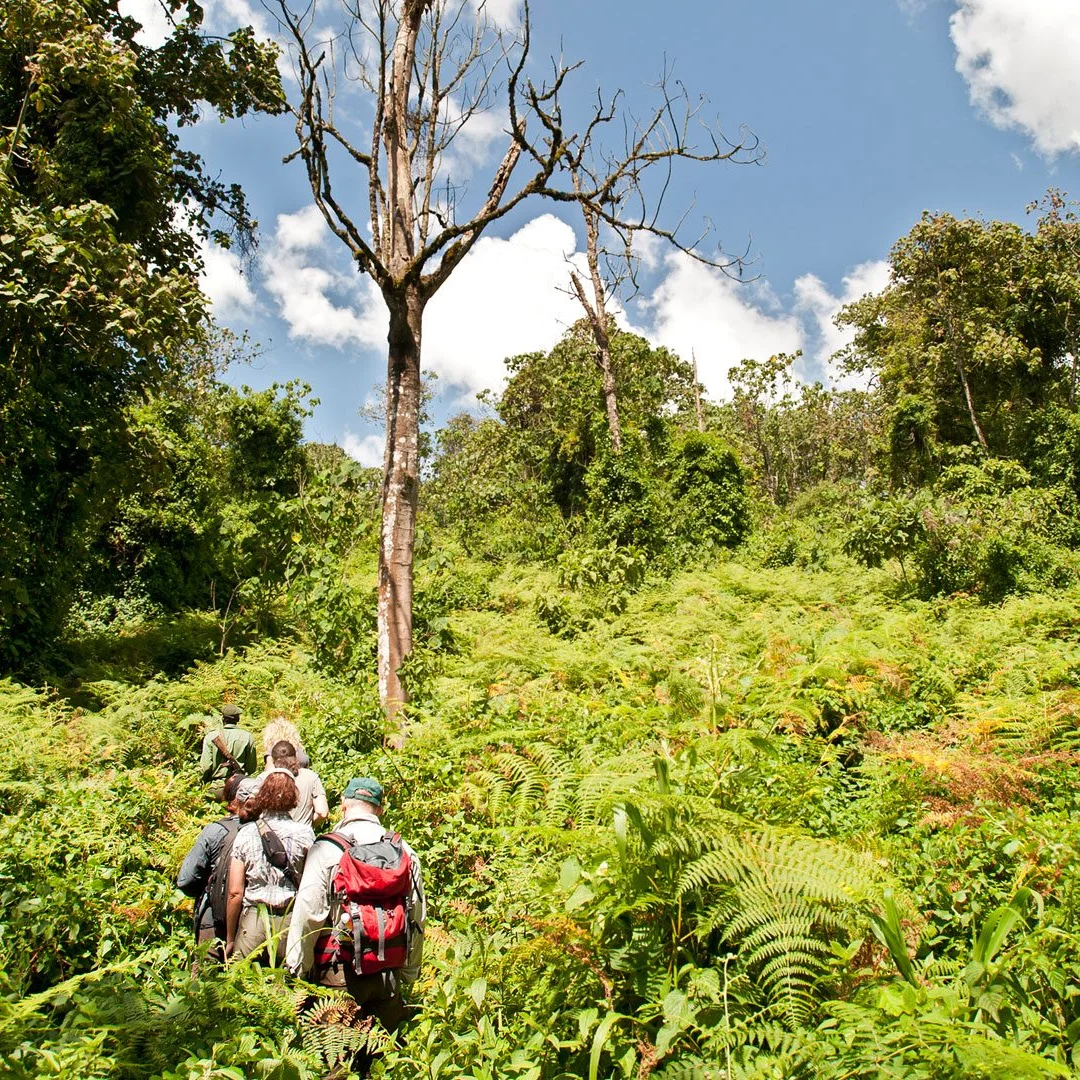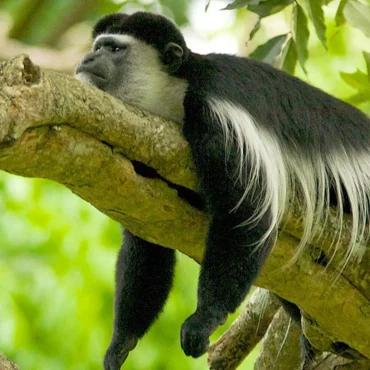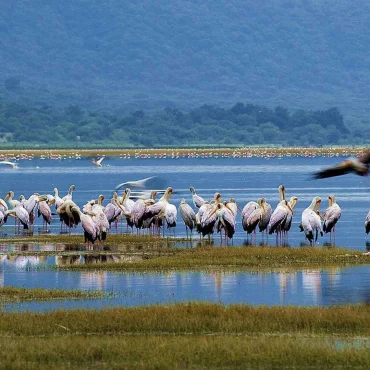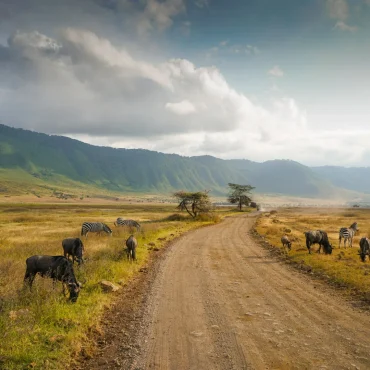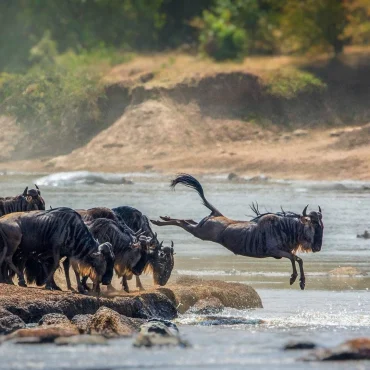Mahale Mountains National Park
Mahale Mountains National Park, located in the far west of Tanzania, is a truly magical place. Spanning 1,600 square kilometers, this park features a striking contrast between its lush, tropical forests and the expansive, sandy shores of Lake Tanganyika.It’s a sanctuary for about 1,000 chimpanzees, notably the well-documented Mimikire clan, which has been studied since 1965. Visitors can experience intimate wildlife encounters, observing these fascinating primates up close in their natural habitat, making Mahale a serene getaway to connect with nature.
- Trace the paths of the approachable Mimikire chimpanzees.
- Relax on the pristine white sands along Lake Tanganyika.
- Encounter a diverse array of primates, including energetic baboons and elusive colobus monkeys.
- Immerse yourself in the rich sounds of the forest, from the calls of monkeys to the whispering wind.
Every visit to Mahale Mountains National Park brings adventure and a chance to connect with nature in one of Africa’s most breathtaking settings.
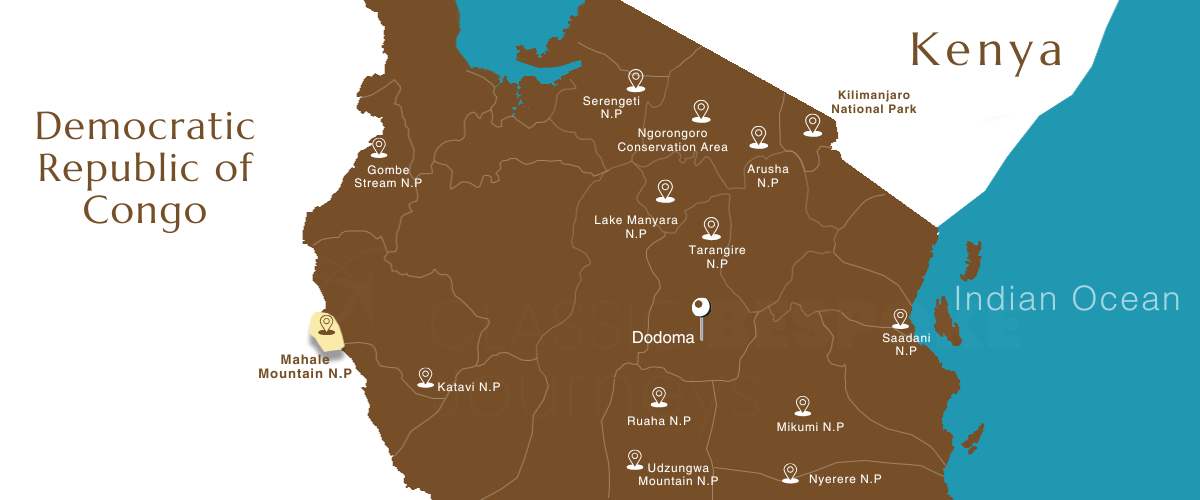
Best Time To Visit
Mahale Mountains is a secluded sanctuary boasting Africa’s top chimpanzee safaris, set against lush forests and tranquil lakeside beaches.
Visiting Mahale Mountain National Park offers a special window into the world of its famed chimpanzees, particularly from May to October. During these months, the chimps are often closer to the lower slopes, making sightings more frequent. The weather is typically sunny, minimizing the chances of rain and reducing the presence of mosquitoes, which lessens the risk of malaria.
Conversely, the Wet Season from November to April transforms the park with clear air, full-flowing waterfalls, and abundant birdlife and butterflies, enhancing the birdwatching experience. However, the chimpanzees tend to move to higher elevations, making them harder to locate, and the trails become slippery. This season, while challenging, highlights the park’s vibrant natural beauty.
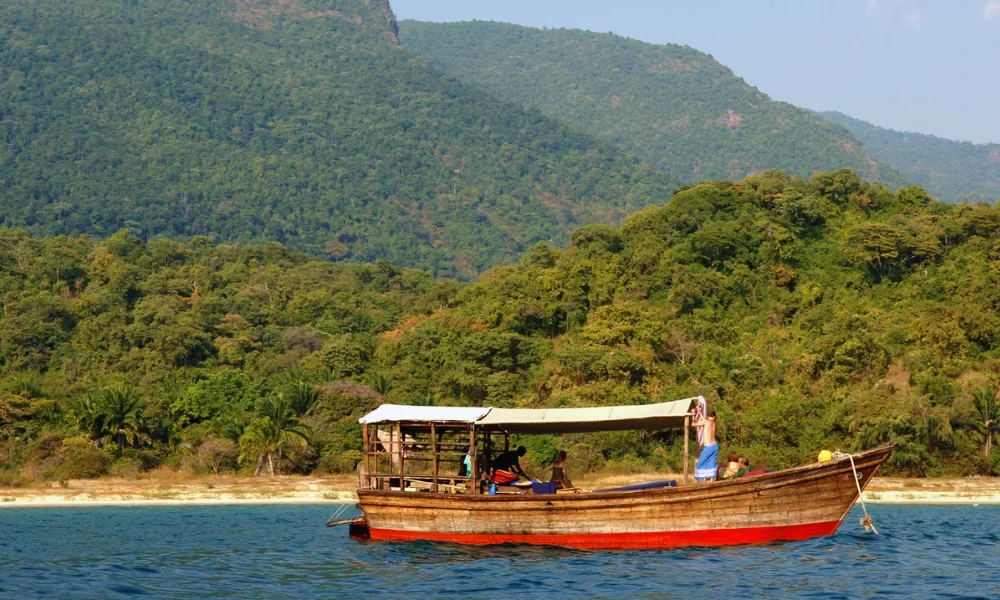

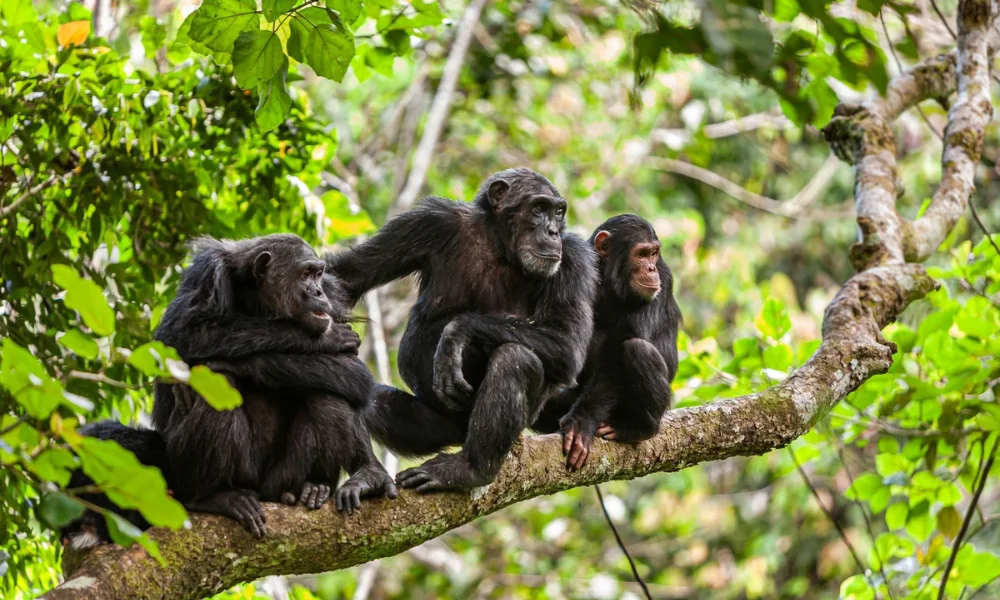
Wildlife
Mahale Mountains National Park is renowned for its chimpanzee tracking. Home to about 900 chimpanzees, visitors can hike forest trails with guides to observe these fascinating primates up close.The park supports a rich diversity of other primates as well, including the endangered Ugandan red colobus, yellow baboon, blue monkey, red-tailed monkey, and vervet monkey. While exploring, you might encounter the elusive nocturnal bushpig and hear the calls of lesser and greater Galagos during the night.
Though more difficult to spot, Mahale’s rugged terrain also shelters elephants, lions, wild dogs, roan antelopes, buffaloes, and giraffes. For those venturing on day hikes, the forested upper slopes offer a chance to see a unique subspecies of the Angola colobus.
Mahale Mountains National Park FAQs
Mahale Mountains National Park is located in western Tanzania along Lake Tanganyika. It covers roughly 1,650 square kilometers in the Kigoma Region and includes the Mahale Mountain range which peaks at over 2,460 meters.
Yes, you must have a guide to explore Mahale Mountains National Park. The park’s dense forests and challenging terrain make a guide essential for safety and navigation, especially when tracking chimpanzees.
Yes, accommodations are available inside the park at two basic campsites, Nkungwe and Malyango, offering a true wilderness experience.
Swimming in Lake Tanganyika is allowed but exercise caution. Avoid areas with dense vegetation and always swim in designated safe zones to steer clear of hippos and crocodiles.
Pack lightweight, breathable clothing, sturdy hiking shoes, insect repellent, a camera, and binoculars for wildlife viewing and hiking.
Why Visit Mahale Mountains National Park?
Chimpanzees
Home to one of the largest populations of wild chimpanzees.
Scenery
Towering mountains, crystal-clear lakes, and lush forests create stunning vistas.
Adventure
Enjoy hiking, trekking, fishing, and snorkelling in breathtaking surroundings.
Culture
Explore the rich heritage of the Tongwe people, long-time inhabitants of the area.
Tranquility
Experience the serenity of one of Tanzania's most peaceful, untouched natural landscapes.
Biodiversity
Observe diverse wildlife and plant species in their natural, undisturbed habitats.
Explore Tanzania Destinations
What Customers Say About Us





